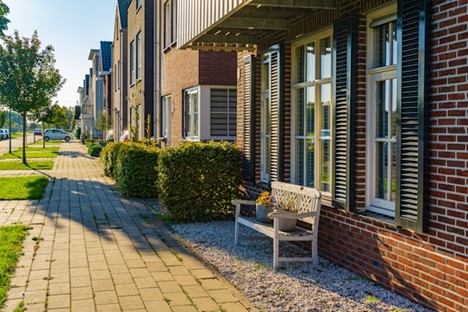Managing multi-use properties can be complex and challenging due to the diverse needs and demands of various tenants. Multi-use properties, which combine residential, commercial, and sometimes even industrial spaces, require a strategic approach to ensure smooth operations and satisfaction for all stakeholders. David Shulick outlines the best practices for optimizing multi-use property management, ensuring efficient operations, and maximizing tenant satisfaction.
Understanding Multi-Use Properties
Multi-use properties, also known as mixed-use developments, integrate different types of spaces into a single development. These properties can include a combination of residential apartments, office spaces, retail shops, restaurants, and more. The primary goal of multi-use properties is to create a dynamic, integrated community where people can live, work, and play.
Best Practices for Managing Multi-Use Properties
Develop a Comprehensive Management Plan
A well-defined management plan is essential for the effective operation of multi-use properties. This plan should include:
- Roles and Responsibilities: Clearly define the roles and responsibilities of property management staff, including maintenance, security, and tenant relations.
- Operational Procedures: Establish standard operating procedures for day-to-day management tasks, such as rent collection, maintenance requests, and tenant communications.
- Emergency Protocols: Develop emergency response plans for various scenarios, such as fire, natural disasters, or security threats.
Implement Advanced Technology
Leveraging advanced technology can streamline property management processes and improve efficiency. Consider implementing the following technologies:
- Property Management Software: Use comprehensive property management software to handle tasks like rent collection, lease management, maintenance scheduling, and tenant communications.
- Smart Building Systems: Integrate smart building technologies to enhance energy efficiency, security, and overall tenant experience. Examples include automated lighting, HVAC systems, and security cameras.
- Mobile Apps: Provide tenants with a mobile app for easy access to property information, maintenance requests, and community announcements.
Prioritize Tenant Relations
Maintaining positive tenant relations is crucial for tenant satisfaction and retention. Effective communication and proactive engagement can go a long way in fostering a sense of community. Key strategies include:
- Regular Communication: Keep tenants informed about property updates, maintenance schedules, and community events through newsletters, emails, or mobile app notifications.
- Tenant Feedback: Actively seek and respond to tenant feedback to address concerns and improve services.
- Community Events: Organize community events and activities to promote interaction and build a sense of community among tenants.

Ensure Regular Maintenance and Upkeep
Regular maintenance and upkeep are vital to preserving the property’s value and ensuring tenant satisfaction. Implement a proactive maintenance strategy that includes:
- Scheduled Inspections: Conduct regular inspections of common areas, residential units, and commercial spaces to identify and address maintenance issues promptly.
- Preventive Maintenance: Perform routine preventive maintenance to avoid costly repairs and extend the lifespan of property assets.
- Responsive Repairs: Establish a system for promptly addressing maintenance requests and repairs to minimize tenant inconvenience.
Optimize Space Utilization
Effective space utilization is key to maximizing the revenue potential of multi-use properties. Consider the following strategies:
- Flexible Spaces: Design flexible spaces that can be easily adapted to different uses, such as converting office spaces into coworking areas or retail spaces into pop-up shops.
- Shared Amenities: Offer shared amenities, such as fitness centers, conference rooms, and rooftop terraces, to enhance tenant experience and attract diverse tenants.
- Space Efficiency: Optimize the layout and design of spaces to ensure efficient use of available square footage and reduce operational costs.
Focus on Sustainability
Sustainability is increasingly important to tenants and can enhance the appeal and value of multi-use properties. Implement sustainable practices such as:
- Energy Efficiency: Utilize energy-efficient lighting, HVAC systems, and appliances to reduce energy consumption and lower utility costs.
- Waste Management: Implement comprehensive waste management programs, including recycling and composting initiatives.
- Green Building Standards: Adhere to green building standards, such as LEED certification, to enhance environmental performance and attract environmentally conscious tenants.
Legal and Compliance Considerations
Managing multi-use properties involves navigating various legal and compliance requirements. Key considerations include:
- Zoning Regulations: Ensure compliance with local zoning regulations and obtain necessary permits for different property uses.
- Lease Agreements: Develop clear and comprehensive lease agreements that outline tenant rights and responsibilities, rent terms, and property use restrictions.
- Safety Standards: Adhere to safety standards and regulations, including fire safety, building codes, and health regulations.
Conclusion
Optimizing multi-use property management requires a strategic and multifaceted approach. By developing a comprehensive management plan, leveraging advanced technology, prioritizing tenant relations, ensuring regular maintenance, optimizing space utilization, focusing on sustainability, and addressing legal considerations, property managers can enhance operational efficiency and tenant satisfaction. These best practices will not only improve the overall tenant experience but also contribute to the long-term success and value of multi-use properties.
